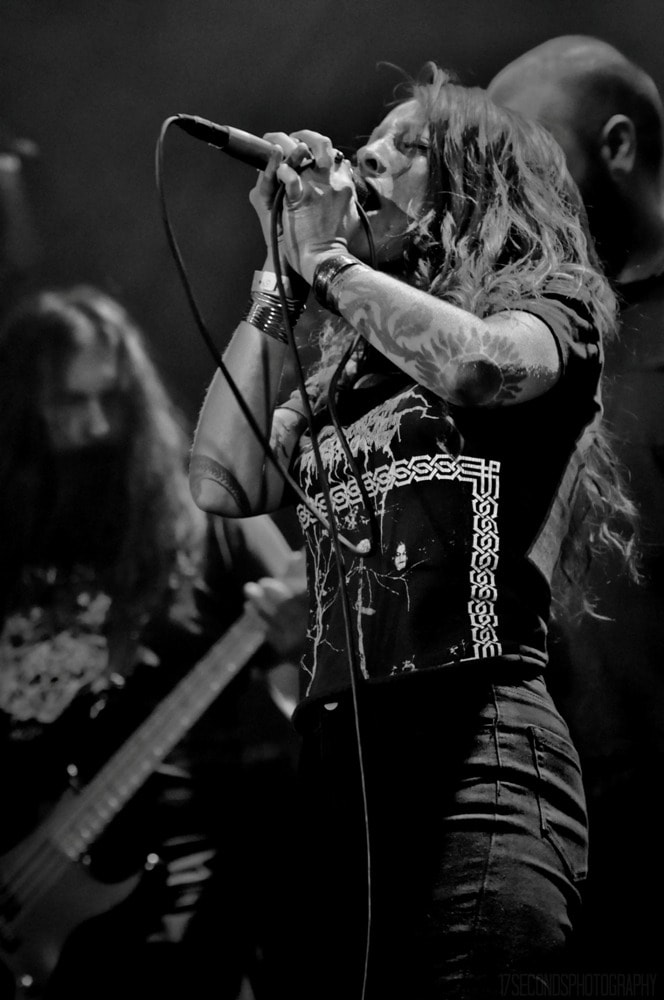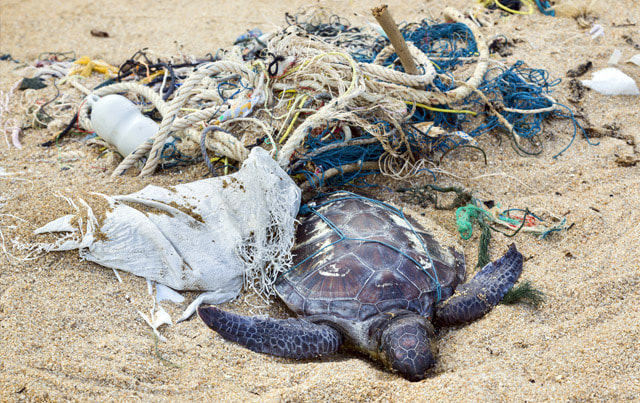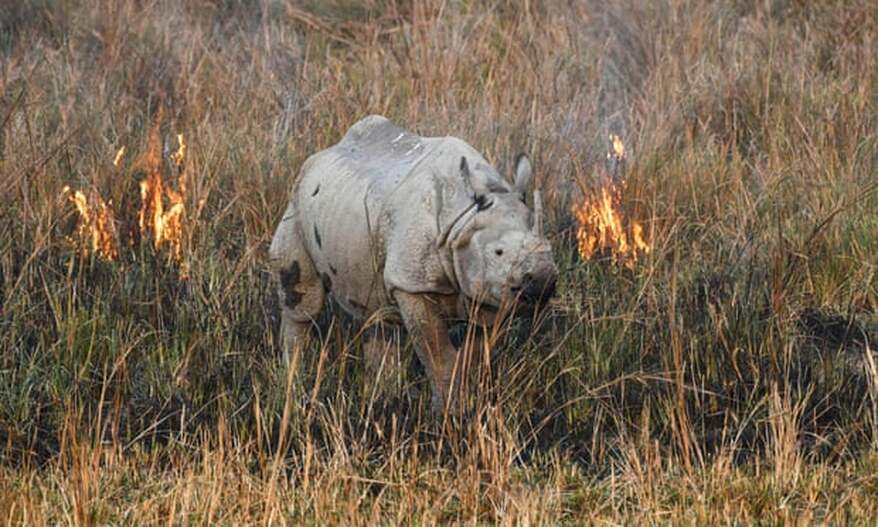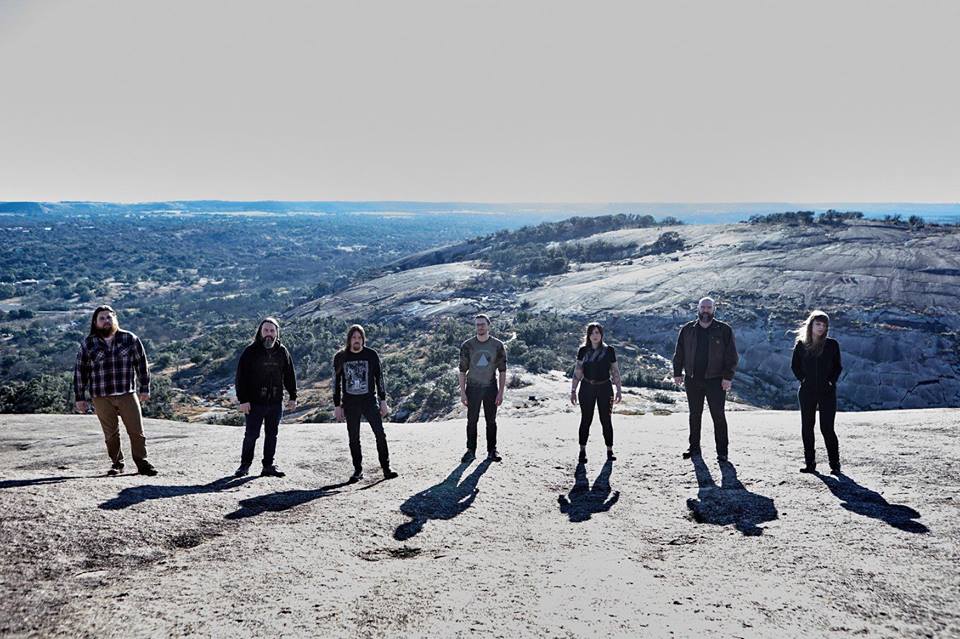"We Live in a Terrible Time"
John Cobb and Heavy Metal (Doom) Music
|
"We must be honest. We live in a terrible time. We know that our actions are destroying the ability of the Earth to support us, but we seem incapable of changing direction. We plunge blindly ahead, either ignoring the reality of what is happening or hoping that some technological miracle will save us. It will not. The modern world has overshot the limits of what the Earth can bear, and our civilization will collapse. The crucial questions now are (1) how much will be left, and (2) can we build something more sustainable in the ruins?" -- John B. Cobb, Jr. in Ten Ideas for Saving the Planet
|
Four Minutes and Twenty Seconds
A Shot of Aliveness in an Ecocidal World
"The Seer's Embrace" imagines a mourning world in which grief both numbs and causes remorse for our arrogant disregard of the signs that an end is near. Amidst the ruins, there is a desire to succumb to the grief, but also a call for acceptance. It is largely influenced by the Anthropocene and how we are creating our own demise through our destruction of the environment. The imagined grief in the song has already become a real grief for many." (Heidi Moore, singer and lyricist for Dead to a Dying World) “Elegy”, a foretelling of a post-human world, explores themes of loss, grief, and the dawn of a new ecology through the eyes of a lone wanderer. The last human grieves the end of humanity, reflecting on the temporal insignificance of man and the sixth extinction caused by the Anthropocene - the end of our kind brought about by our own hubris, greed, and desire for power over one another. “Elegy” marks the third chapter in the trilogy, which explores our relationship to our world by reflecting on our past, present, and impending future. " (Bandcamp) "The Texas band Dead to a Dying World's second album is a hybrid of doom, black metal, and crust punk, buttressed by baroque classical flourishes and focused on the state of the world and its rather grim prospects....Litany deals with the state of the world and its rather grim prospects, delivered in moribund language that suggests we are, as a species, poised at the precipice of our end. The music animates that message, with sweeping arrangements and chiming guitars, washes of distortion and marches of drums shaping a battle between anxiety about our future and hope for it, between infinite pessimism and purposeful optimism Though the tools are different, Dead to a Dying World suggest the same frisson as the Arcade Fire in their salad days and the same emotional ambiguity as Explosions in the Sky. There is no single style to Litany, just as there are no easy answers about the worries Dead to a Dying World address." Grayson Haver Currin in Pitchfork |
As a Beatles and pop music guy, I’ve been a little slow to appreciate metal music in general and doom metal in particular. "A new landmark report from the United Nations paints a bleak picture of the planet. It warns 1 million of the planet's 8 million species face the threat of extinction because of ... us. Humanity's ever-growing population and seemingly insatiable consumption are destroying the natural world, the report says. The global rate of species extinction is listed as "tens to hundreds of times higher" than it's been over the last 10 million years. Shrinking habitat, exploitation of natural resources, climate change and pollution are the main drivers of species loss. And that's not the only recent bad news to come out. Another study says permafrost is melting so fast in the Arctic that it's damaging the equipment scientists use to measure it." |
John Cobb on "Is it Too Late?"
"Forty years ago I didn't think it was too late. I was developing a Christian theology influenced by the philosophy of Whitehead, and I was challenged by my children and others to address environmental issues. I realized that theology must be eco-theology if it is to be helpful to how we live in the world. The world, after all, is not simply a human world. It is a web of life.
Accordingly I wrote a book called Is It Too Late?, in which I developed the idea that, despite trends to the contrary, we might avoid destroying the life-support systems on which we and other living beings depend.
It was a hopeful book and in some ways I am a hopeful person. As a Christian I believe that God is present throughout the universe and in our planet through fresh possibilities, even when it seems too late for hope. I believe that inspiration within and beneath the creativity of the universe is divine. My hope is also inspired by the poignancy and beauty of the world itself: the poignancy and beauty of the natural world and of people, too, who are within and part of the natural world. We humans have the unique responsibility to protect one another and the rest of the natural world. We are beckoned by God to be caretakers.
But the powers of God are not absolute. God cannot reverse the past or manipulate the present like a puppeteer. God's power is that of persuasion not coercion, of love not manipulation. In many ways it is too late. Too much has been lost. Too much is being lost. The poor are the first to suffer.
We must be honest. We live in a terrible time. We know that our actions are destroying the ability of the Earth to support us, but we seem incapable of changing direction. We plunge blindly ahead, either ignoring the reality of what is happening or hoping that some technological miracle will save us. It will not. The modern world has overshot the limits of what the Earth can bear, and our civilization will collapse. The crucial questions now are (1) how much will be left, and (2) can we build something more sustainable in the ruins?
Hope?
One reason we behave so badly is that the modern world has a misleading understanding of the nature of reality. What is mis-leading leads astray, and humanity collectively has been led far, far astray. Without a better understanding, the answers to the questions above will be (1) “very little” and (2) “probably not.” Those of us who have had good fortune to encounter a better way of understanding the world have a profound responsibility to share it.
For my part, I find the philosophy of Whitehead a better way. His philosophy of organism or process philosophy can help integrate the best of ecological thinking and the best of humanistic thinking, and it does to in a way that brings together scientific, religious, ethical and artistic insights. Like a small but growing number of people in our world, I am a Whiteheadian. This does not mean that I agree with everything Whitehead says, but it does mean that, like others, I think in a Whiteheadian mode.
In general our efforts to share the Whiteheadian approach have not been heard because most people have been satisfied with what they had or else convinced that there is no alternative. But today more people have come to see the insanity of our behavior and wonder whether there may be another way. My task is to sketch the better understanding and its more promising implications in ten points. I hope the ideas might be helpful. (Ten Ideas for Saving the Planet)
Accordingly I wrote a book called Is It Too Late?, in which I developed the idea that, despite trends to the contrary, we might avoid destroying the life-support systems on which we and other living beings depend.
It was a hopeful book and in some ways I am a hopeful person. As a Christian I believe that God is present throughout the universe and in our planet through fresh possibilities, even when it seems too late for hope. I believe that inspiration within and beneath the creativity of the universe is divine. My hope is also inspired by the poignancy and beauty of the world itself: the poignancy and beauty of the natural world and of people, too, who are within and part of the natural world. We humans have the unique responsibility to protect one another and the rest of the natural world. We are beckoned by God to be caretakers.
But the powers of God are not absolute. God cannot reverse the past or manipulate the present like a puppeteer. God's power is that of persuasion not coercion, of love not manipulation. In many ways it is too late. Too much has been lost. Too much is being lost. The poor are the first to suffer.
We must be honest. We live in a terrible time. We know that our actions are destroying the ability of the Earth to support us, but we seem incapable of changing direction. We plunge blindly ahead, either ignoring the reality of what is happening or hoping that some technological miracle will save us. It will not. The modern world has overshot the limits of what the Earth can bear, and our civilization will collapse. The crucial questions now are (1) how much will be left, and (2) can we build something more sustainable in the ruins?
Hope?
One reason we behave so badly is that the modern world has a misleading understanding of the nature of reality. What is mis-leading leads astray, and humanity collectively has been led far, far astray. Without a better understanding, the answers to the questions above will be (1) “very little” and (2) “probably not.” Those of us who have had good fortune to encounter a better way of understanding the world have a profound responsibility to share it.
For my part, I find the philosophy of Whitehead a better way. His philosophy of organism or process philosophy can help integrate the best of ecological thinking and the best of humanistic thinking, and it does to in a way that brings together scientific, religious, ethical and artistic insights. Like a small but growing number of people in our world, I am a Whiteheadian. This does not mean that I agree with everything Whitehead says, but it does mean that, like others, I think in a Whiteheadian mode.
In general our efforts to share the Whiteheadian approach have not been heard because most people have been satisfied with what they had or else convinced that there is no alternative. But today more people have come to see the insanity of our behavior and wonder whether there may be another way. My task is to sketch the better understanding and its more promising implications in ten points. I hope the ideas might be helpful. (Ten Ideas for Saving the Planet)









